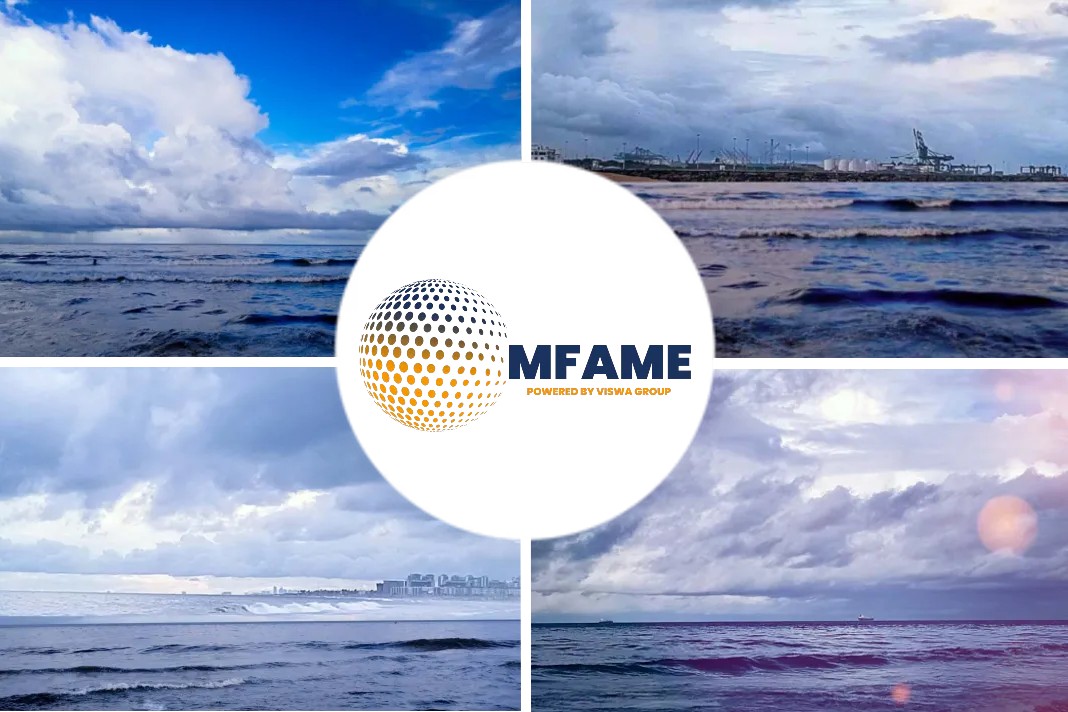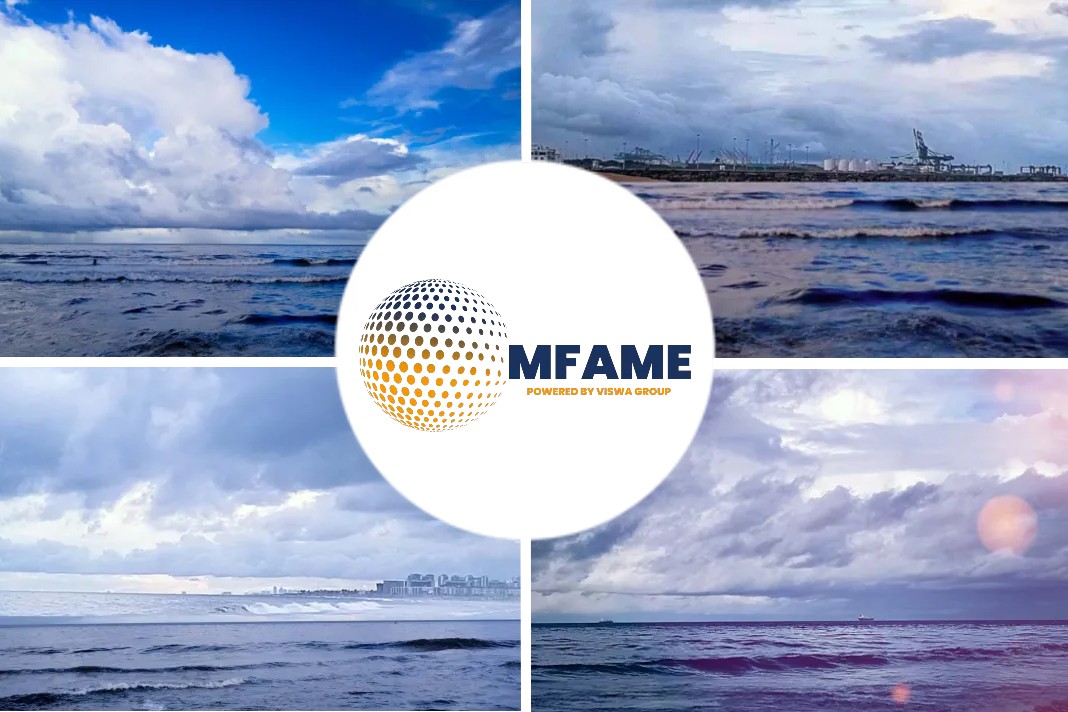- Coronavirus advisories are doing the rounds.
- Joining others, the International Maritime Health Association has issued a detailed guidance.
- Crews, Passengers, port authorities and marine industry officials all should be careful
- Some shipping companies are denying Off-Signing for crews
- This is harmful and can spread the virus, IMHA strictly prohibits this.
- Facial protection storage in ships is the right way.
- Preventing disembarkation of non-affected ships isn’t necessary.
In a major development as crews are being denied off from ships that visited China due to Coronavirus scare, the International Maritime Health Association ( IMHA) has issued advice for shippers, reports Safety4Sea.
What is it?
Following the severity of the coronavirus outbreak, the International Maritime Health Association (IMHA) issued advice for the shipping companies, adding that the symptoms are fever and acute respiratory symptoms.
The new Coronavirus was first detected in December 2019 in Wuhan City, Hubei Province of China and rapidly the virus spread throughout the globe.
Crews Denied Off-Signing
Meanwhile, Nautilus announced that they have received comments that seafarers who have visited Chinese ports are being denied off-signing by countries fearing the spread of coronavirus, meaning that crews could remain onboard for many additional weeks.
Off-signing is when a seafarer reaches the end of their contract of employment onboard a vessel and prepares for crew transfer and the road back home.
However, seafarers that are refused off-signing by a disembarkation country could stay onboard for many weeks, or months, depending on the vessel’s schedule and disembarkation port.
In addition, there is a possibility that the crew could face an additional 14 days onboard to Singapore from China, or an additional 30 days onboard to Qatar after leaving China, for example.
Refusing Off-Signing Against IMHA
It is highlighted that refusing the disembarkation of seafarers goes against the advice issued by the International Maritime Health Association (IMHA).
IMHA updated its advice on reducing the risk of infection from the new coronavirus on January 26 to include:
- Do not restrict embarkation /disembarkation of seafarers in non-affected ports;
- Do not restrict necessary ship visits by port agents, chaplains, service personnel and others;
- IMHA also recommended that ship operators store facial protection for all crew, with a minimum of five pieces per person.
Detailed IMHA Advice
Given that the seafarers travel a lot throughout the world’s oceans, the Association provided specific advice to shipping crew and companies:
- Do not restrict embarkation /disembarkation of seafarers in non-affected ports
- Do not restrict necessary ship visits by port agents, chaplains, service personnel and others.
- Do not visit Food Markets in China. Avoid provision of fish and poultry in China.
- Do not consume raw eggs, milk, meat. • For galley: Observe strict food hygiene to avoid cross contamination
- Store facial protection for all crew (5 pieces /per person)
- Provide influenza vaccination, alcohol based hand rub and facial protection to ship inspector and other company employees who travel to China.
What to do when one is sick?
If a person on board falls sick AND has been travelling to affected areas 2-12 days before embarkation, the person must stay in his cabin. Consult a Medical Doctor in the next port.
If a sick person is on board of the ship, fill the Maritime declaration of health and notify port authority.
How to prevent infection?
Additionally, IMHA issued guidance of steps to be taken so people can avoid infection:
- Frequently clean hands by using alcohol-based hand rub or soap and water;
- When coughing and sneezing cover mouth and nose with flexed elbow or tissue – throw tissue away immediately and wash hands;
- Avoid close contact with anyone who has fever and cough;
What to do if you show symptoms?
If you have fever, cough and difficulty breathing seek medical care early and share previous travel history with your healthcare provider.
Keep off Live Animal Markets
When visiting live markets in areas currently experiencing cases of novel coronavirus, avoid direct unprotected contact with live animals and surfaces in contact with animals.
Avoid Raw Undercooked Food
The consumption of raw or undercooked animal products should be avoided. Raw meat, milk or animal organs should be handled with care, to avoid cross-contamination with uncooked foods, as per good food safety practices.
AMSA Issues Advisory
Following the cue, the Australian Maritime Safety Authority (AMSA) is collaborating with government agencies to ensure that the measures taken in Australia are efficient and that their approach is consistent with the whole of government preparedness and response.
Additional Measures
It is reported that the Australian Government has placed additional border measures, health screening and isolation recommendations for people and ships travelling to Australia from mainland China.
Moreover, the Department of Agriculture is in close contact with the shipping sector to ensure compliance with the pre-arrival reporting requirements of ill travellers, along with the Department of Health which also provides communication materials for passengers and crew at Australian international airports and seaports.
Marine Sheet Information for Coronavirus
The Australian Government’s Department of Health issued a information marine sheet providing specifications on how the Australian shipping sector deals with the virus.
Specific vessels have additional coronavirus requirements:
- Vessels that have left, or transited through, mainland China on or after 1 February 2020 and less than 14 days ago.
- Vessels with crew or passengers who have left, or transited through, mainland China on or after 1 February 2020 and less than 14 days ago.
- Vessels that have had ill crew or passengers on board in the past 14 days.
- Vessels that have crew or passengers who have been in contact with a confirmed case of novel coronavirus in the past 14 days
The vessels that have to follow the requirements above should be aware that the crew and their passengers onboard may be subject to additional health screening and self-isolation requirements when disembarking in Australia.
Additional Measures for the Marine Industry
In addition, the marine industry can reduce the risk to passengers, crew and marine industry staff.
This can be achieved by following the measures below:
- Commercial vessels should promote good cough and sneeze hygiene among crew and passengers.
- Commercial vessels should undertake appropriate cleaning and disinfection activities.
- People should wash their hands frequently with soap and water or use alcohol-based hand sanitizer.
- People should avoid touching their mouth, eyes, and nose with unwashed or gloved hands.
- If personal protective equipment (PPE) is recommended, it should be worn properly.
- Where possible, people should stay one metre or more away from passengers or crew with symptoms of coronavirus unless wearing appropriate PPE as per employer work instructions.
- Marine industry staff temporarily boarding a vessel that is subject to additional coronavirus requirements should stay one metre or more away from crew unless wearing appropriate PPE (surgical mask and gloves).
- Awareness should be increased by providing the Department of Health’s fact sheets on coronavirus to passengers and crew.
- It is further stated that Australian marine industry staff will experience additional health screening and isolation requirements, part of the country’s precautionary measures. Thus, all staff should wear appropriate PPE when interacting with people while on board a vessel with additional coronavirus requirements.
What to do while contacting the affected crew?
If staff have been in contact with people with symptoms of coronavirus while on board the vessel, staff should make themselves known to the biosecurity officer when possible.
It is not necessary for marine industry staff to wear PPE if they are not boarding a vessel subject to additional coronavirus requirements, or not interacting with crew or passengers. Regular hand washing or use of alcoholbased hand sanitiser is always recommended.
Did you subscribe to our daily newsletter?
It’s Free! Click here to Subscribe!
Source: Safety4Sea

















